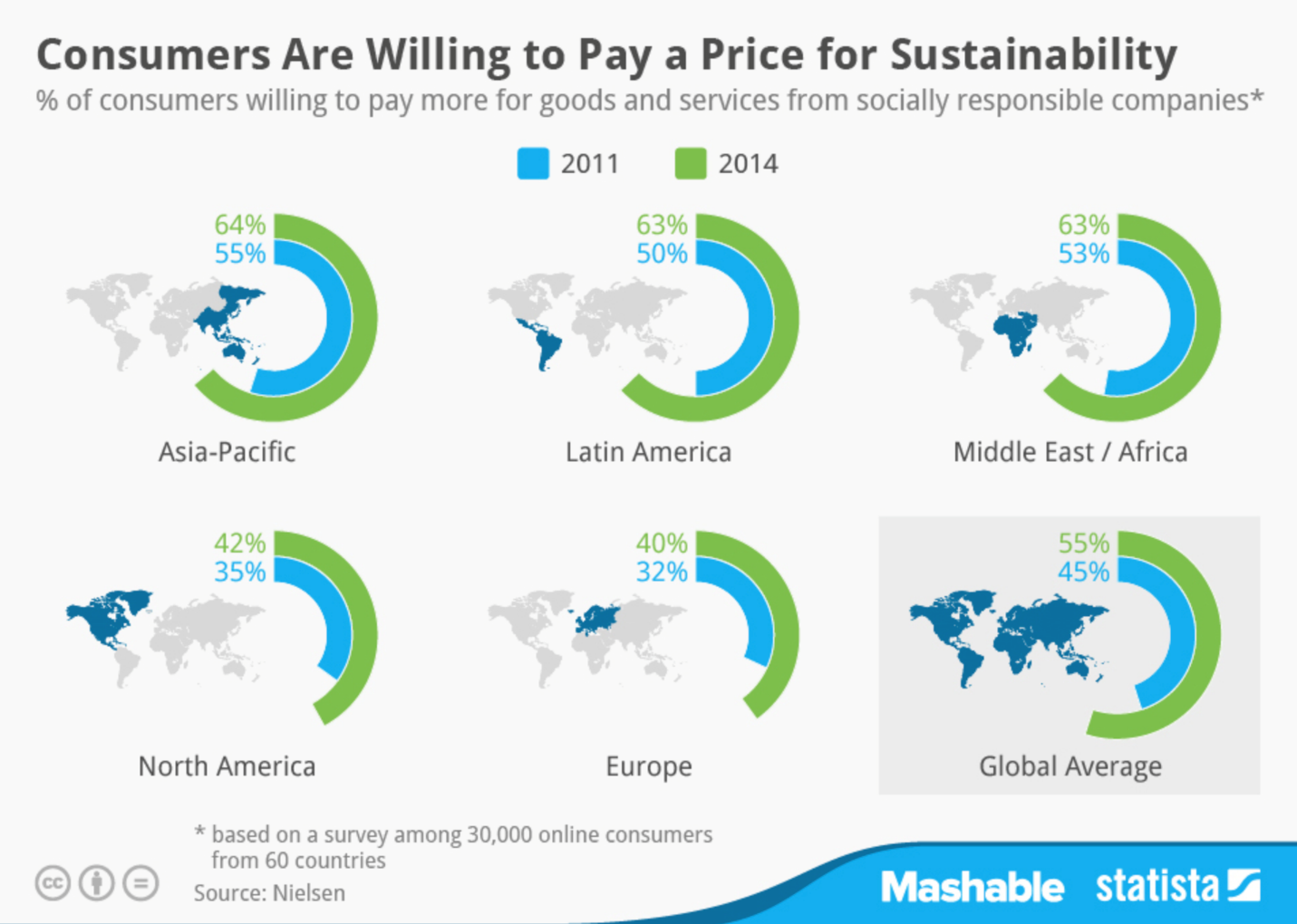The Impact of Sustainability on Consumer Behavior
A thriving sustainable market aligns economic and financial incentives, standards, and regulations to ensure that everyone has access to a diverse range of inexpensive and sustainable products. This is a distinct possibility.
Nielsen conducted a global survey of 30,000 people in 60 countries in 2015. They wanted to investigate what factors influence how people feel about companies and how those feelings affect their purchasing decisions.

Two-thirds of those polled said they would gladly pay more for sustainable goods.
Millennials were even more willing to pay between 10% and 25% more for sustainable products and services: nearly three out of four were willing to pay between 10% and 25% more. Only half of those questioned the year before would have acted in the same way.
Notably, in developed markets, the percentage of people willing to pay more is lower. It is because consumers have more options. Moreover, the consequences of extreme social-economic inequality, looming threats, limited opportunities for decent and safe work are less immediate.
As a result, there is a far greater scope and demand in emerging and developing economies for market engineering and advocating sustainable ideals to consumers. Consumers are looking for — and selecting – healthier, greener, and socially responsible alternatives. They're also willing to go to great lengths.
1World Economic Forum, 24 Sep 2018, Terri Toyota, Sustainability is now mission critical for businesses. Here’s Why, Accessed 2 Nov 2021, https://www.weforum.org/agenda/2018/09/sustainability-is-now-mission-critical-for-businesses-heres-why/
For more about this topic, download our latest book " Sustainability: The Inevitable Future " for FREE:
